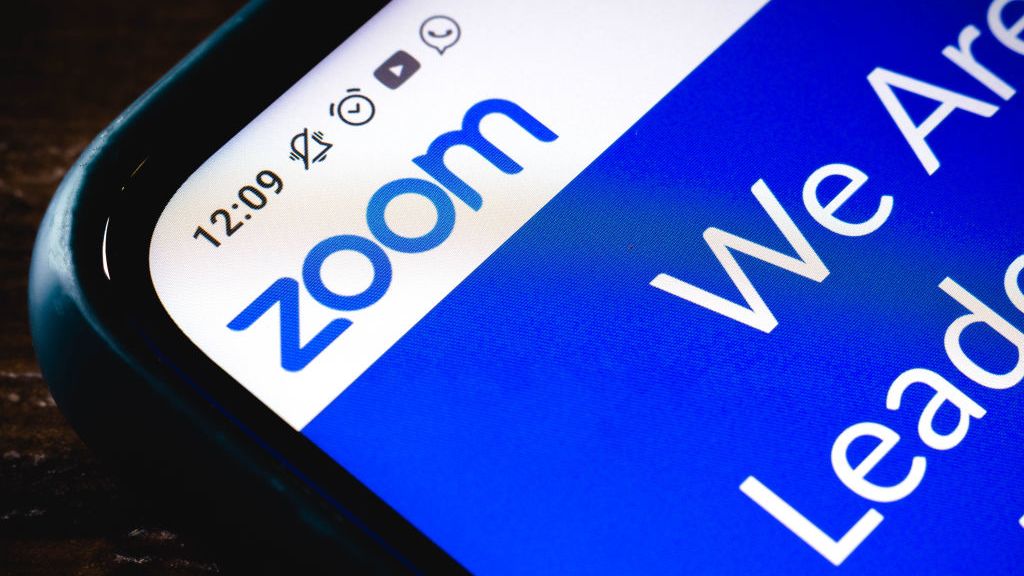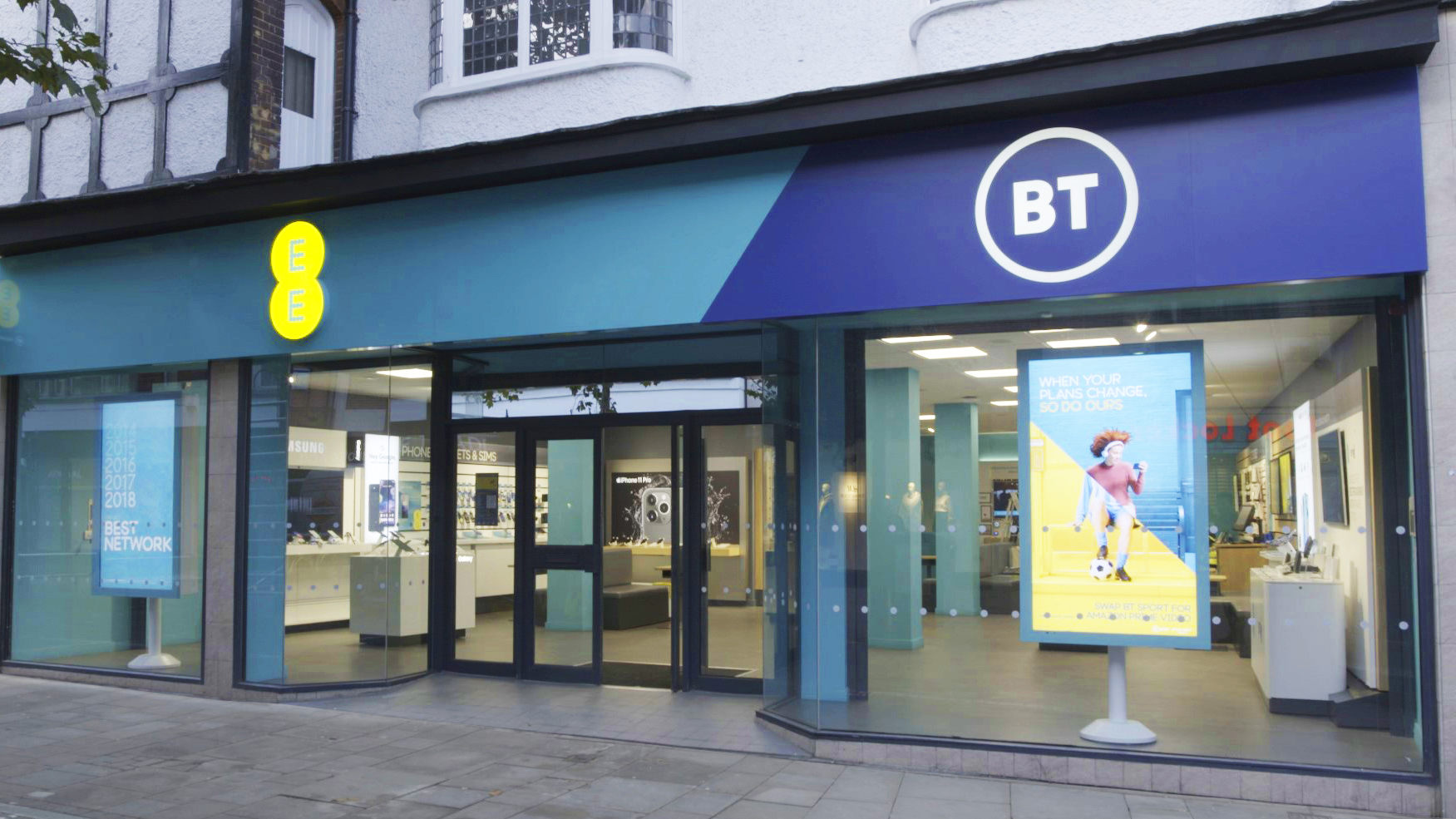The big PSTN switch off: What’s happening between now and 2025?
The challenges of adopting IP telephony can be overcome, but you don't have long to act

For over a century, phone calls in the UK have been handled by the public switched telephone network (PSTN). This is the umbrella term for the complex infrastructure of telephone lines, satellite links, and switching centres which connect one caller to another when a specific phone number is entered.
But internet calls, video conferencing, and online collaborative tools have far exceeded the capabilities of PSTN, and it is becoming increasingly difficult to maintain.
By the end of 2025 PSTN will be switched off across the United Kingdom, ushering in a new era of telecoms. Digital services will take its place, namely internet protocol (IP) or voice over internet protocol (VoIP) phone systems through which users can make calls via broadband or mobile data.
Network operators such as BT are already helping businesses to make the switch, migrating customers onto modern IP phone systems that run on fibre in place of the outdated copper wires that PSTN uses.
Most businesses pay for both phone service and internet access - switching to IP calling brings both under the same roof for lower overall cost, as well as a host of other benefits including high-quality video conferencing and improved accessibility.
Openreach is dedicated to this hard and fast deadline, and has been preparing for the switch off since 2016. In the public sector, a great deal of systems including rail and motorway infrastructure will need to be updated to function after the PSTN switch off and this work is underway. But the private sector needs to take the initiative to adopt IP services now instead of down the line.
2025 may feel like it’s a way off in the future, but in reality it’s under two years away. This is why it’s absolutely crucial that businesses that have not already switched to IP telephony or VoIP make a start on it now; the sooner you adopt the new technology, the sooner your business can benefit from IP calls.
How can my business prepare?
Businesses that don’t adopt cloud phone systems before the PSTN switch off will face more problems than just not being able to make calls. Many alarm systems are also connected to a company’s phone lines, and if these are still operating on legacy hardware by the time the switch off comes they will be rendered inoperable.
Additionally, lift alarms and other points of contact in an emergency often run on PSTN, and will need to be upgraded before 2025.
Communication providers are aware of how many organisations use PSTN lines, but control over the hardware that will need to be swapped out or updated before the deadline is in the hands of those customers. So, the better stock a company takes in advance, the easier its IP transformation will be.
For some small businesses, this may mean buying new dedicated handsets and IT personnel familiarising themselves with their phone service dashboard.
Larger businesses, on the other hand, may need to retire large amounts of outdated equipment, and draw up strategies for new opportunities offered by IP including call analytics and customisable hold messages. This will require extensive planning, so should be completed sooner rather than later to prevent a stressful and costly transformation closer to the deadline. With BT’s Professional Services, they will plan and implement the full migration from the discovery phase to final on-site testing.
How can I adopt these services by 2025?
BT is ready right now to help firms make the transition as smoothly as possible, whether it involves swapping old handsets for new ones all at once, or through a phased approach that sees critical systems retired and upgraded one by one.
It can handle the installation of new hardware such as IP phones, as well as ongoing maintenance to ensure that the transformation is as simple as plug and play for your company. Swapping in IP phone services needn’t be a long or painful process, and businesses don’t even need to change their phone number or existing settings, such as hold recordings.
Once a business has adopted IP telephony, it only pays for what it needs and can easily scale its systems up or down at any time. Between now and 2025, a company may rapidly expand, move location, or enter a new market and seek stats on how its new customers respond to its calls. On a legacy phone system, this would mean added hardware and maintenance costs, limitations on where it can move, and complicated oversight to draw statistical insight from calls.
But through services like BT Cloud Work, all this and more would be at the business’ disposal at no added cost. PSTN isn’t just an outdated standard that will be retired – it’s holding firms back from their full, flexible potential.
Adopting IP calling is very much part of the wider digital transformation that businesses around the country are undergoing. Just like the most intense period of the pandemic saw widespread digital transformation in the adoption of hybrid work suites and cloud collaboration software by many businesses, the time between now and 31 December 2025 will be a crucial proving ground for the continued operations of all companies.
Another reason businesses might choose to move to IP telephony as soon as possible is to give their employees more time to familiarise themselves with the new systems.
BT can also help here, with its comprehensive range of courses that cover all the features of its Cloud Work service. These include basics such as answering calls on the go and call forwarding through cloud routing, to core features and admin portals, call analytics, and integration with third-party APIs.
In time between now and 31 December 2025, companies need to take a firm grasp of IP telephony as a part of their digital transformation. By accepting the help available from BT your business can move away from PSTN without disrupting their systems, but this journey must be embarked on as soon as possible to ensure you make the most of it.
Get the ITPro daily newsletter
Sign up today and you will receive a free copy of our Future Focus 2025 report - the leading guidance on AI, cybersecurity and other IT challenges as per 700+ senior executives

Rory Bathgate is Features and Multimedia Editor at ITPro, overseeing all in-depth content and case studies. He can also be found co-hosting the ITPro Podcast with Jane McCallion, swapping a keyboard for a microphone to discuss the latest learnings with thought leaders from across the tech sector.
In his free time, Rory enjoys photography, video editing, and good science fiction. After graduating from the University of Kent with a BA in English and American Literature, Rory undertook an MA in Eighteenth-Century Studies at King’s College London. He joined ITPro in 2022 as a graduate, following four years in student journalism. You can contact Rory at rory.bathgate@futurenet.com or on LinkedIn.
-
 Should AI PCs be part of your next hardware refresh?
Should AI PCs be part of your next hardware refresh?AI PCs are fast becoming a business staple and a surefire way to future-proof your business
By Bobby Hellard
-
 Westcon-Comstor and Vectra AI launch brace of new channel initiatives
Westcon-Comstor and Vectra AI launch brace of new channel initiativesNews Westcon-Comstor and Vectra AI have announced the launch of two new channel growth initiatives focused on the managed security service provider (MSSP) space and AWS Marketplace.
By Daniel Todd
-
 What the UK can learn from the rest of the world when it comes to the shift to IP
What the UK can learn from the rest of the world when it comes to the shift to IPSponsored From the Netherlands to Singapore, UK organisations can learn lessons from forward-thinking countries and make the PSTN switchover as seamless as possible
By Keumars Afifi-Sabet
-
 How digital marketing will evolve beyond social media
How digital marketing will evolve beyond social mediaIn-depth Twitter's ongoing destabilisation proves businesses can't rely on social media for digital marketing forever
By Elliot Mulley-Goodbarne
-
 TD Synnex Maverick announces availability of Zoom for partners in Europe
TD Synnex Maverick announces availability of Zoom for partners in EuropeNews Partners now have access to the entire Zoom portfolio, including unified communications platform Zoom One
By Daniel Todd
-
 Best Twitter alternatives for businesses and IT professionals
Best Twitter alternatives for businesses and IT professionalsIn-depth With its long-term viability as a networking and commercial space in question, the industry is casting its eye to several Twitter alternatives
By John Loeppky
-
 BT Wholesale is bringing EE’s mobile connectivity to partners
BT Wholesale is bringing EE’s mobile connectivity to partnersNews The partnership will provide access to EE’s 4G and 5G networks as the PSTN switch-off approaches
By Daniel Todd
-
 Why engineering teams love Slack
Why engineering teams love SlackWhitepapers The adaptive collaboration hub for software engineering
By ITPro
-
 Avaya's Wavenet partnership aims to deliver affordable enterprise-quality UCaaS
Avaya's Wavenet partnership aims to deliver affordable enterprise-quality UCaaSNews The collaboration combines unified-communications-as-a-service (UCaaS) and contact centre-as-a-service (CCaaS) with bundled calls and minutes
By Daniel Todd
-
 3CX StartUP: no business too small
3CX StartUP: no business too smallAdvertisement Feature If you’ve found unified phone systems too challenging to set up or too expensive, then the new 3CX StartUP option tailored for micro businesses might be the solution
By IT Pro